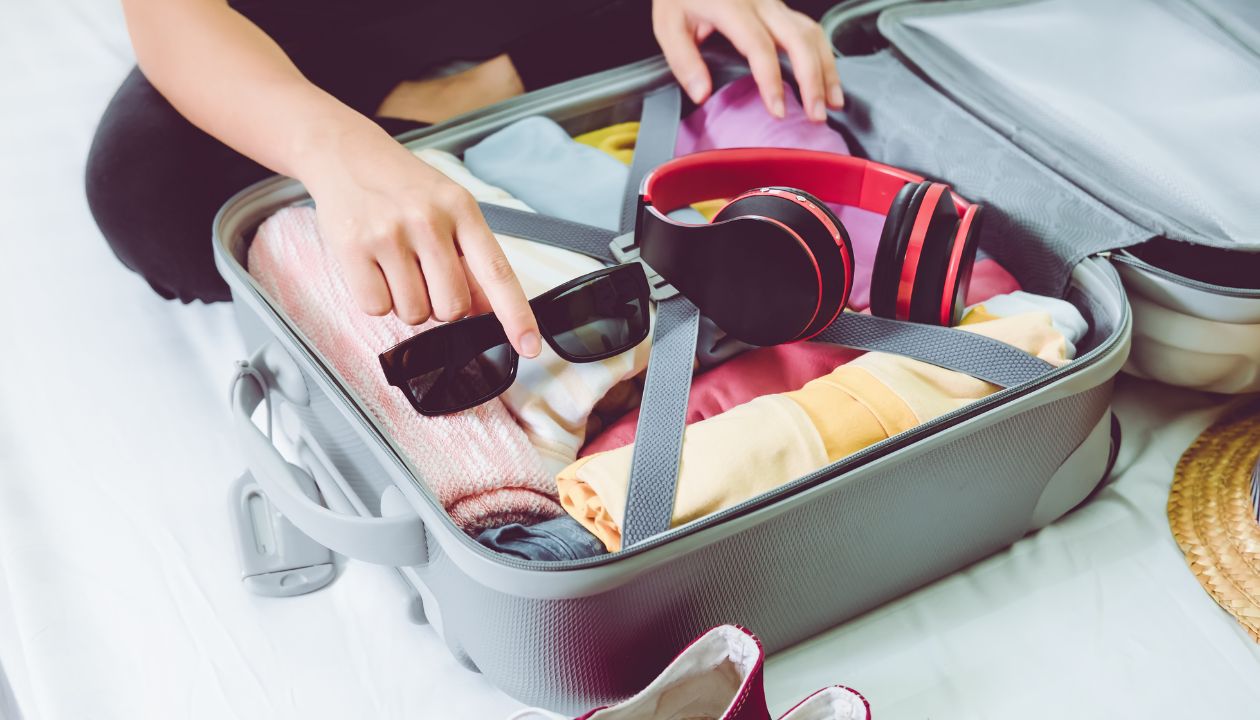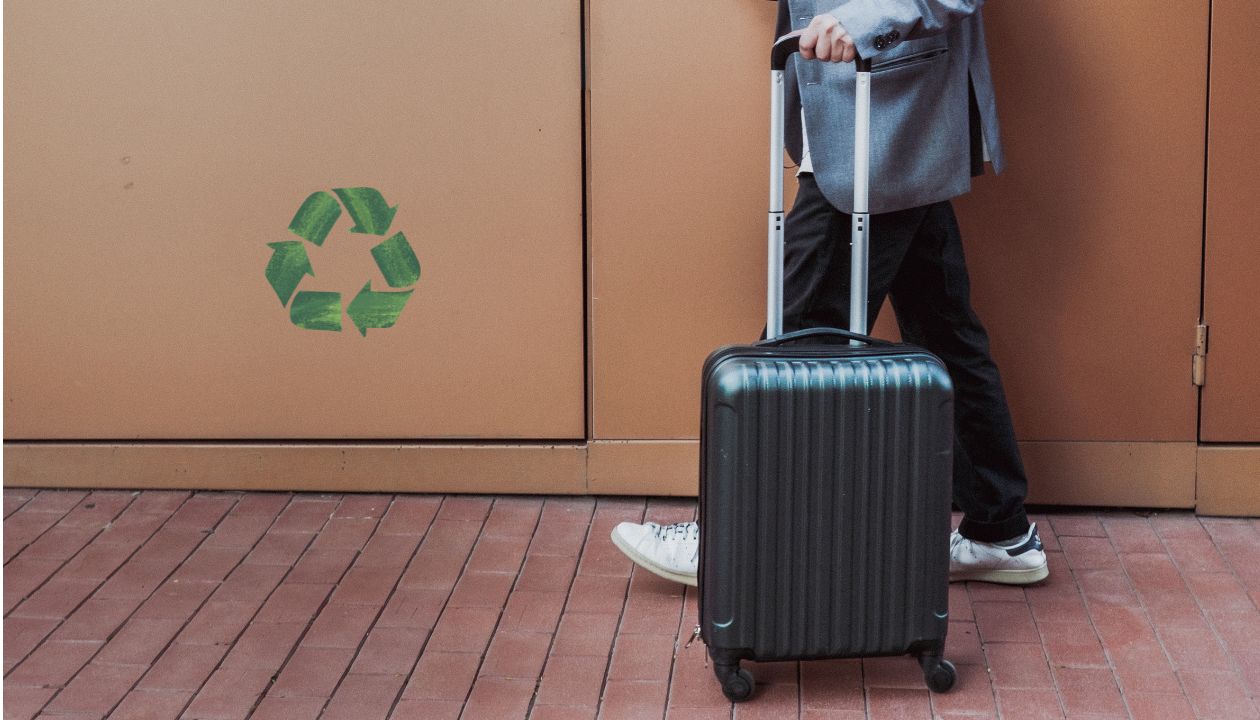
How to Choose the Right Sustainable Luggage for Your Travel Style
Responsible Travel Starts with Wiser Decisions
Your bag is not just a piece of luggage—it's your travel buddy, your roadside closet, and your quiet business partner. And in a world where how we travel is as important as where we travel, picking the correct luggage is no longer simply a matter of size and colour.

It's about impact.
Modern-day travellers are reconsidering each item they bring along—and even what they bring it in. With the growth of sustainable materials, responsible manufacturing, and circular design for products, environmentally friendly luggage is finally keeping pace with contemporary values.
Not all sustainable luggage is the same, though. And more importantly, not all sustainable luggage suits your travel style.
So how do you select the best one? This guide simplifies it—by travel style, values, and everyday requirements.
What Is "Sustainable" Luggage?
You have to know what to look for before making a selection. Here's what makes truly sustainable luggage. Recycled or bio-based materials (such as rPET, bamboo, hemp, or cork)
-
Ethical manufacturing with fair labor and low-impact production
-
Durability and repairability (designed to last, not landfill)
-
Circular design—designed to be reused, upcycled, or recycled at end-of-life
-
Minimalist packaging and carbon-offset shipping
Beware of greenwashing: Not everything labelled "eco-friendly" is actually eco-friendly. Be on the lookout for specifics, not slogans.
Step 1: Know Your Travel Habits
Various travel habits require different specifications. Here's how to pair your routines with your perfect eco-friendly luggage.
The Minimalist Weekend Jetsetter
You travel out of a carry-on, pack lightly, and avoid the check-in queues. You value efficiency, convenience, and style.
What to look for:
-
Small carry-on with light recycled hard shell (e.g., rPET or recycled aluminum)
-
Few and simple compartments and clean lines
-
Integrated USB charger (solar if available)
-
Made by certified carbon-neutral brand
Bonus Features:
-
Expansible but organised design
-
Recycled lining construction inside
-
360° spinner wheels for ease of navigation
Recommended brands:
Koora | Solgaard | Paravel
The Adventure Backpacker
You're off the beaten trail. Buses, border crossings, hostels, and trails are your routine. You require rugged, not just elegant.
What to seek:
-
Softshell backpack in organic canvas or hemp
-
Modular sections, compatibility with hydration
-
Rain-resistant lining and long-lasting zippers
-
Ethical and biodegradable materials
Bonus Features:
-
Repairable stitching or patchable material
-
Reinforced base for abusive wear
-
Compression straps to reduce bulk
Recommended brands:
Pakt | Terra Thread | Patagonia | Cotopaxi
The Business-Class Commuter
You travel frequently, prioritise functionality, and don't settle for complexity. You require a bag that is stylish, eco-friendly, and intelligently designed.
What to look for:
-
Sleek hard-shell or hybrid suitcase made from recycled plastic or aluminum
-
TSA-lock approved, laptop compartment
-
Quiet wheels, streamlined finish
-
Certified as carbon-neutral and fair-labor
Bonus Features:
-
Luggage sleeve for work bag
-
Interior garment organizer
-
Scratch- and stain-resistant outer shell
Recommended brands:
Samsonite Proxis Eco | Horizn Studios | Monos | Koora
The Slow Traveler or Digital Nomad
You remain longer, work remotely, and travel in-depth. You require bags that are versatile, spacious, and eco-friendly.
What to look for:
-
Check-in bags of mid-size made out of recycled bottles or cork-blend
-
Eco-dyed lining, mendable components
-
Expandable capacity for extended trips
Bonus Features:
-
Internal laundry pouch (reusable)
-
Tech, skincare, cable compartments
-
Climate-positive manufacturing with brand transparency
Recommended brands:
Paravel Aviator | Koora | Samsonite Eco Nu | July
The Family Traveler
Traveling with children? You require space, organization, and sustainability designed for real life.
What to shop for:
-
Big-capacity soft-shell suitcase constructed from recycled canvas or rPET
-
Compartments for multiple passengers
-
Simple to clean, wipe-down surface
-
Designed for durability (kids = mayhem)
Bonus Features:
-
Recyclable packaging
-
Machine-washable laundry bags
-
Certified for safety (no toxic glues or dyes)
Recommended brands:
REI Co-op | Samsonite Eco Collection | Roam Luggage
Step 2: Match Values to Materials
What do you value most?
-
Your Priority : Best Material Options
-
Decreasing plastic
-
trPET (bottle-recycled plastic), cork
-
Plant-based options
-
Hemp, bamboo, organic cotton
-
Vegan-friendly
-
Piñatex (pineapple leather), apple leather
-
Low carbon footprint
-
Recycled aluminum, rPET with carbon offsetting
-
Biodegradability
-
Hemp, organic canvas, cork
Tip: Get hybrid. Most brands combine materials for the strengths of both worlds—durability + sustainability.
Step 3: Assess Practical Features That Withstand the Test of Time
Sustainable design is not only about materials but also longevity.
Check for:
-
Replaceable parts (wheels, handles, zippers)
-
Repair kits or repair service from the brand
-
Stitch quality and warranty coverage
-
Timeless aesthetics—avoid seasonal colors or trends
Think: Will this look and perform well five years from now?
Step 4: Think Beyond the Luggage
-
A fully conscious luggage choice includes:
-
How it’s packaged (plastic-free? Recycled cardboard?)
-
How it's delivered (carbon-neutral shipping?)
-
What happens at end-of-life (can you return or recycle it?)
-
Whether your purchase gives back (tree planted, carbon offset, etc.)
Companies such as Koora take it a step further by contributing a percentage of sales to reforestation and children's education, making each bag part of a larger story of impact.
Red Flags to Avoid (Even in "Green" Products)
-
"Vegan leather" that is actually PVC or polyurethane
-
No material breakdown or percentages
-
Zero labor practice or transparency mention
-
Low prices with "sustainable" label = probably greenwashing
-
Trendy gimmicks (such as bamboo zippers) without real lifecycle design
-
If a brand is really sustainable, they'll prove it to you.
Being "sustainable" is not just about being eco-friendly. It's about traveling in harmony with your values, your routines, and your vision for the world.
You don't have to be perfect.
You just have to start where you are—and choose better.
Because every zipper that functions 10 years from now…
Every bottle that doesn't become ocean trash.
Every purchase that supports conscious makers…
…adds up to a future we can all travel to



Leave a comment
This site is protected by hCaptcha and the hCaptcha Privacy Policy and Terms of Service apply.